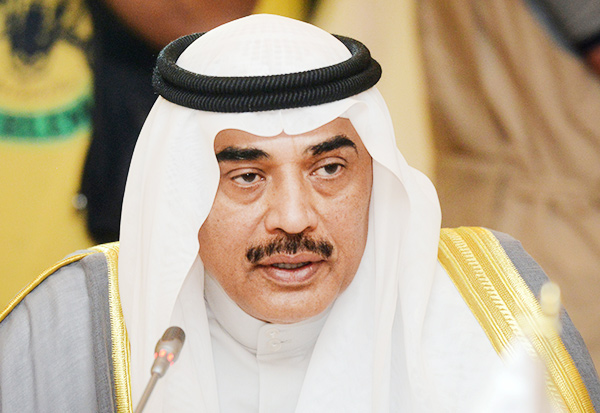
Kuwait reassured Lebanon on Monday that it will maintain its support and aid despite the latest diplomatic rift with Saudi Arabia and the rest of the Gulf states.
“The Kuwaiti aid for the brotherly Lebanese people will continue,” Kuwait’s Deputy PM and Foreign Minister Sheikh Sabah al-Khaled al-Sabah announced.
But he noted that “Lebanon is required remain a part of its Arab region and its concerns and problems.”
Sheikh al-Sabah’s remarks come despite the fact that his country has joined Saudi Arabia and the rest of the Gulf countries, except for Oman, in issuing a travel advisory against travel to Lebanon.
Saudi Arabia started its measures on February 19 when its foreign ministry announced that the kingdom was suspending $4 billion in military aid to the Lebanese army and security forces in response to what it called “hostile Lebanese positions resulting from the stranglehold of Hezbollah on the state” and Hezbollah “terrorist acts against Arab and Muslim nations.”
Around 90 Lebanese citizens have since been fired from their jobs in Saudi Arabia, according to media reports.
The kingdom also attributed its move to Lebanon’s refusal to join the Arab League and the Organization of Islamic Cooperation in condemning attacks on Saudi diplomatic missions in Iran last month. Foreign Minister Gebran Bassil said Lebanon abstained from voting on the two resolutions in line with its famous “dissociation” policy and because Hezbollah was described as “terrorist” in the Arab statement.
Bassil, heads the Free Patriotic Movement , a staunch ally of the Iranian backed Hezbollah militant group.
Riyadh cut diplomatic ties with Tehran after demonstrators torched its embassy and a consulate following the Saudi execution of a proIranian Shiite dissident, Sheikh Nimr al-Nimr.
Kuwait is a major contributor to several infrastructural projects in Lebanon and to the Syrian Refugees in Lebanon.
Last September Kuwait charged 26 people with possessing weapons and having contacts with Iran and the Lebanese Hezbollah group in order to plot attacks against the Gulf state.
Ties between Iran and its Gulf Arab neighbors have been strained by suspicions that Tehran is trying to extend its influence into Arab countries including Lebanon, Bahrain, Syria, Iraq and Yemen.

Leave a Reply
You must be logged in to post a comment.